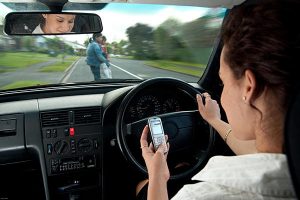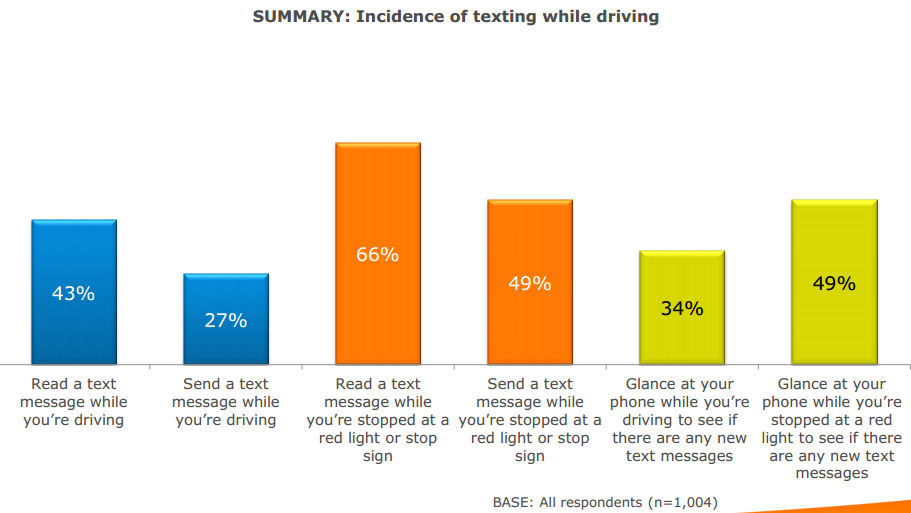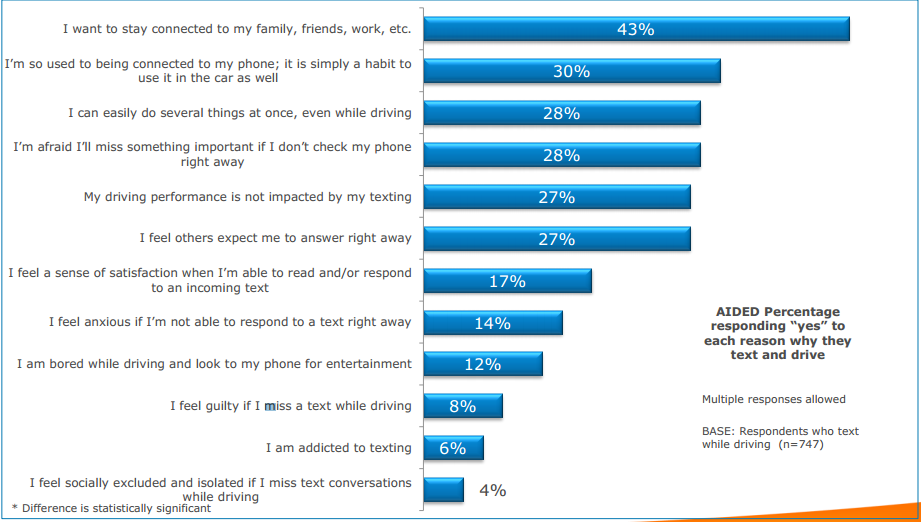Is Your Texting and Driving Compulsive?
November 12, 2014/
You get in the car and turn over the ignition, pulling out onto the road, when suddenly, your phone beeps. Another incoming text message from your friend. Do you look at it? It’s an important decision that could mean the difference between life and death in some cases, but most people don’t even think twice about picking up a smartphone on the road.
Texting while driving, as most people know, has become a huge issue–not only in teens, but for everyone. I can’t tell you how many times I’ve passed by someone and glanced over to see one hand on the wheel and their nose in a phone. But studies show that it might not be a conscious decision to check your messages, and if you’re one of millions who is guilty of this habit you probably aren’t alone.
What The Studies Say
AT&T recently sponsored a study (which you can view here) surveying 1,000 drivers between the ages of 16 and 65 who drove at least once a day and texted every day. And, while 98% of the respondents said that they thought texting while driving was dangerous, nearly three-fourths of drivers said that they have interacted with their phones while in the car. The study also asked people why they felt the need to check their phones while driving, even though they knew it was dangerous, and here is what they said: (as a note, respondents were allowed to choose more than one response.) The one that shocked me the most was that 12% of respondents said they were bored while driving, and looked to their phones for entertainment. Now, maybe I’m a little old-fashioned, but the idea that using your phone while driving due to boredom is pretty terrifying. But that made me start to wonder why so many people reported feeling the need to compulsively check their phones in places where they shouldn’t. In this interview (also sponsored by AT&T) with Dr. David Greenfield from the Center for Internet and Technology Addiction, the need to check your phone is literally an addiction, and results in an increased level of dopamine when messages are there. (For those of you a little rusty on your biochemistry, dopamine is a neurochemical that is associated with pleasure.) You can watch a brief interview where he talks about compulsive texting below:What To Do
So, how do you keep people from texting while driving? Well, back to the study we referenced earlier, as it turns out, around 82% of respondents said that they actually feel pretty good about themselves when they take steps to stop texting while driving, while relatively few felt anxious or frustrated. To try and help spread the word, AT&T and a few other companies have been spreading about a new social shorthand, #X as an acceptable way to pause conversations on social media, text messages or any other medium before you hit the road. However, if you are having trouble resisting the urge to constantly check your phone, there are also several apps that can help with pausing texting while driving. One of the better apps is called AT&T DriveMode. Available for both iPhone and Android, this app must be toggled on before driving and will automatically sends a response to incoming messages that you’re unavailable. It also silences notifications so you aren’t distracted. For those who need a bit more motivation, DriveScribe measures and evaluates driving performance, including texting while driving and going the speed limit, and gives users points based on their driving. Those points can then be redeemed for gift cards and discounts at various retail outlets. It is also available for both Android and iPhone. What suggestions do you have to help drivers keep their hands off their phones and on the wheel? Let us know in the comments!]]>
Posted in FAQ



